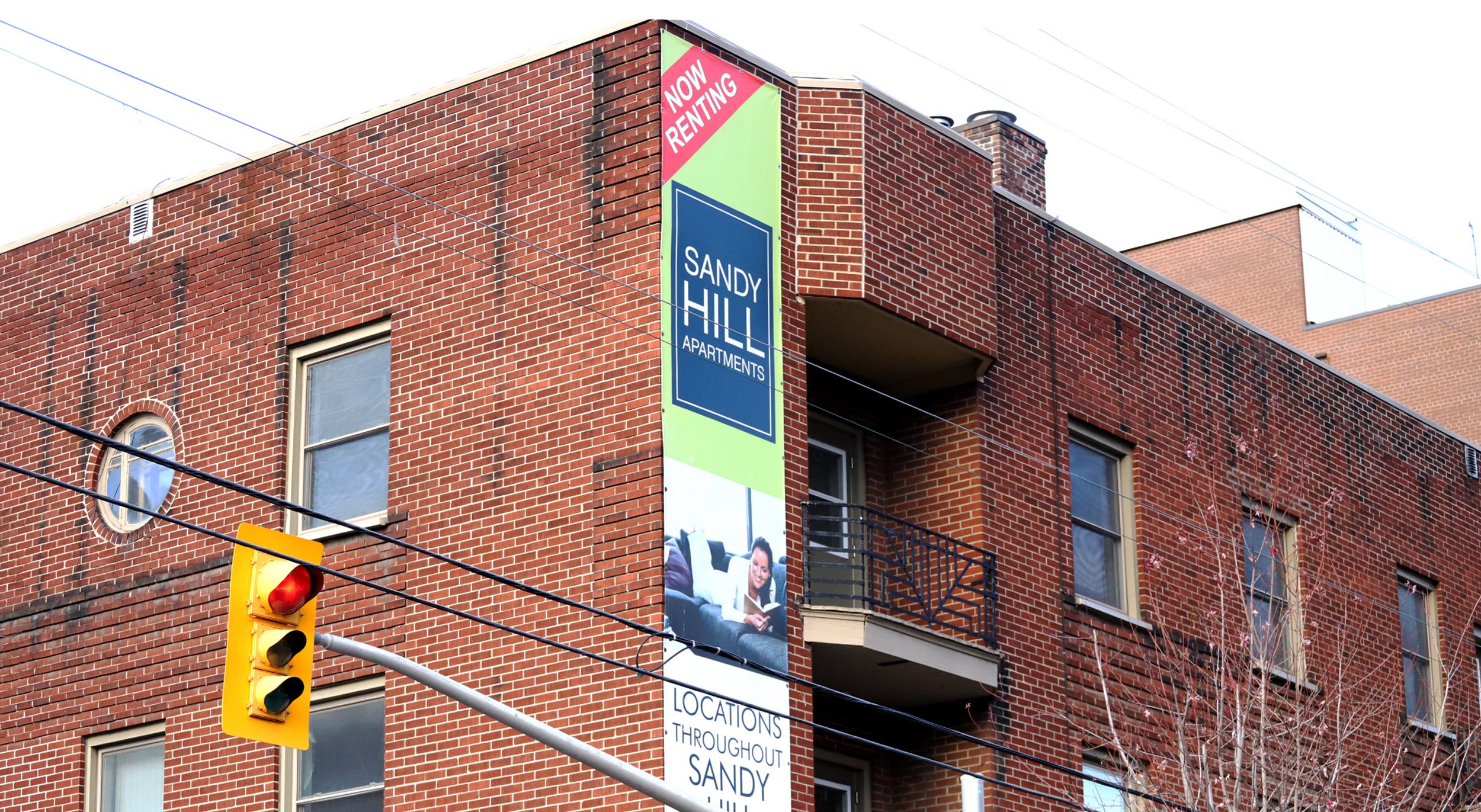It’s that time of the year again when everyone is looking for a place to live. Renting can be a nightmare for many, but to every problem, there’s a solution. Renting is no exception — here’s how to do it right.
Be prepared
Visiting apartments is much more demanding than one would think. According to Gabby Horan, a member of the Ottawa Region Landlords Association, there are eight key points that a future renter should keep in mind in order to be successful:
- Available spaces are typically advertised on the market seven to 12 weeks ahead of time, and if you wait under seven weeks, you’re going to get whatever is left
- Choose the earliest appointment time available
- Confirm the appointment time on the day of your meeting
- Have all your info ready
- If you’re a student and have a guarantor, have all your guarantor information ready
- Make sure your roommates have all their info ready because the weakest link in the chain can really throw things off
- Look into renter’s insurance in advance
- Dress professionally for the appointment
“This is like a job interview — you want to let the landlord know you are serious about this,” said Horan.
Knowing your rights
Housing Help is an association in Ottawa that, among other things, provides legal advice relating to housing. The association’s executive director, Shea Kiely, filled us in on some of the most important things to keep in mind during the house hunt.
“Without getting into very specifics, there’s an Ontario Standardized Lease (OSL) that came out (in May 2019), because in the past landlords could type up any kind of lease that they wanted,” said Kiely. “Now, there’s a standard lease every landlord has to use, and this is really helpful because it is consistent for everyone; it outlines exactly what’s legal and what’s not.”
In addition to rent, Kiely said that landlords — depending on what’s agreed to in the lease — can charge the tenant for water, hydro and heat expenses.
“Those are typically the things a tenant should be paying for,” she said.
She added that students and newcomers who don’t know their tenant rights are especially susceptible to being taken advantage of by their landlord.
“Oftentimes it has to do with maintenance: things not being up to standards, someone not having heat or electricity has been out,” she said. “Sometimes the landlords try to pass on the payment on their tenants — that’s not real.”
Kiely’s best advice? Don’t sign anything that you haven’t checked out.
“Especially if it’s a lease, make sure it’s the OSL agreement. Of course, do your research before you sign anything,” said Kiely. “It’s also really good to talk to another tenant in the building (or a previous renter on) what their experience with the landlord has been.”
The price is right
Unsurprisingly, the closer you are to campus, the more expensive rent will be. Horan suggests sharing a place to lessen the cost.
The City of Ottawa’s rental market analysis studied the average price of rent different neighbourhoods across the city. In 2018, the average price of rent for an apartment with three or more bedrooms in Alta Vista was $1,884. Downtown, average rent was $2,048; $2,407 in Sandy Hill; and $1,358 in Vanier.
In terms of where to find a place to rent, Kiely said that the best online resources are Padmapper, Kijiji, the marketplace group on Facebook, and Craigslist.
Get all the info on appliances and amenities
Most rentals come with appliances and amenities, but some landlords may not provide any. Do your research and read your rental agreement carefully to see what your landlord will provide.
If she had to do it all over again, second-year nursing student Victoria Shcherbak would have made sure she had more appliances guaranteed before signing her lease.
“Doing dishes without a dishwasher really sucks,” said Shcherbak.
Some students don’t mind this, but others might find a lack of included appliances and amenities challenging or a waste of time. Future renters should definitely inquire about what is included in their future place before jumping in.
Maintenance and repairs
“The landlord’s job is to maintain a livable property, they can not allow for something in the home to cause you harm, and water, heat, and electricity must work,” said Steph Quenneville, an Ottawa landlord and mortgage broker.
This means that landlords must replace any damage due to “wear and tear” – natural deterioration — or any appliances provided by them if they are no longer working. However, buyers beware; landlords are under no obligation to equip their tenants with the latest or nicest kitchen stove model on the market.
The tenant does have some responsibilities, too. According to the Residential Tenancies Act, the occupant — whether it is accidental or not — “must repair or pay for the repair of any damage to the rental property caused by the tenant, the tenant’s guest or another person who lives in the rental unit.”
Why should I even live off-campus?
This is a question only fellow students can answer.
“On campus, I had a roommate who I didn’t know, so privacy was an issue for me,” said DeJong. ”I also love having somewhere to live that isn’t by the school. This way I can keep my school life and home life separate.”
“There are no quiet hours and I have way more freedom than when I was living in residence,” added Maddie Zylstra, a second-year psychology student.
Obviously, there are some downsides to renting. Commuting, having lots of roommates, going grocery shopping and cooking for yourself every day — it’s all about balance.
Renting like a pro
Lastly, it’s important as a renter to know just how much authority your landlord has over you. For example, few people know that it is illegal in Ontario for landlords to prohibit pets in their space, even if the lease mentions “no pets allowed”.
Also, landlords have to give their renters a 24-hours notice before entering a unit in order to make repairs, for example. Shutting off or interfering with any of a rental’s vital services – heat, electricity fuel or water (hot or cold) – is also prohibited.
Renting is tough, and no one can protect you from the sewer rats and evil roommates, but armed with these simple facts, you’ll be just fine.





